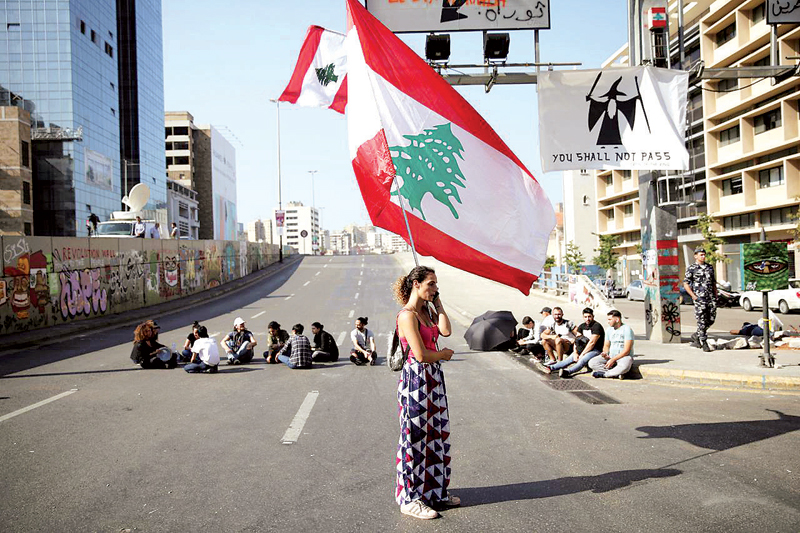

Samia Nakhoul and Tom Perry -
The Lebanese government must swallow its misgivings and reach a rescue deal with the International Monetary Fund (IMF) or risk economic implosion and further turmoil, economists, diplomats and politicians said.
Privately, some government officials acknowledge that an IMF bailout is the most logical solution to Lebanon’s economic crisis, according to a source familiar with ongoing discussions.
But to get such a rescue programme in place, the new government would have to overcome the objections of Hizbullah, who are concerned about the austerity measures an IMF rescue would involve.
As Lebanon’s financial crisis drags on and government revenues dwindle, the bill to rescue the country is rising. Former economy minister and ex-vice central bank governor Nasser Saidi estimates the economy will need $30 billion, and an additional $25 billion to recapitalise a banking system in hock to the state.
“Lebanon needs external liquidity both for the balance of payments but also for the government,” Saidi said. “That’s why the external package and the IMF reform programme which comes with all the associated reforms which we need is so necessary”.
A $1.2 billion payment on a Eurobond is falling due on March 9 and even though Lebanon is widely expected to restructure its foreign-currency-denominated debt that is unlikely to be enough to deal with the total debt burden, economists and analysts say.
The IMF has estimated that Lebanon’s public debt would reach 155 per cent of gross domestic product by the end of 2019, one of the biggest debt burdens in the world.
Any move to restructure will further pressurise local banks, which after years of funnelling their deposits to the state, have an exposure to Lebanese sovereign debt that stands at almost twice their capital base.
The government could look at forcing depositors to take losses as another way to alleviate its burden. But the Lebanese banking system has been built on attracting deposits from overseas and grabbing such cash would make it more difficult for Lebanon to attract hard currency in future.
The banks have already seen deposits drain away, despite effectively imposing capital controls on ordinary savers, and urgently need to restock their balance sheets.
Lebanon hired US investment bank Lazard and law firm Cleary Gottlieb Steen & Hamilton LLP last week as advisers.
But with inflation shooting up to 30 per cent, the pound depreciating by 40 per cent since October and the number of jobless rising every day, analysts say only a full IMF deal will unlock the tens of billions of dollars Lebanon now needs.
“The IMF opens doors to international assistance. An IMF programme is inevitable”, said Toufic Gaspard, a former government and central bank economist.
“It’s likely Hizbullah will eventually accept an IMF plan because they have no other option. The alternative will be serious political and economic crises”.
The government said it was working its own rescue plan without resorting to an IMF programme and was only seeking IMF technical assistance.
A senior Hizbullah official said that terms required by any IMF bailout would spark social unrest.
“The position is not towards the Fund as an international financial institution but on the terms offered to Lebanon, because they will lead to a popular revolution,” Hizbullah MP Hassan Fadallah said.
“Our position is against this type of programme and not against the Fund as an organisation.” The IMF declined to comment, referring instead to a statement from last week when it said its staff had held five days of “very informative and productive” talks with Lebanese authorities, and stood ready to provide further technical advice as the Lebanese government formulated its economic reform plans.
Corruption and bad governance are seen as root causes of problems and the crisis, which has seen street protests against the ruling elite, represents the most serious threat to the country’s stability since the 1975-1990 civil war. — Reuters
Oman Observer is now on the WhatsApp channel. Click here



